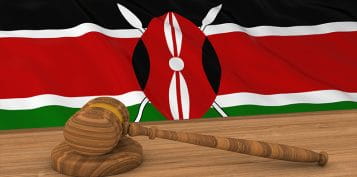Oregon Gambling Laws – Gambling in the Beaver State
Oregon gambling laws cover the entire range of casino legalization requirements, legal games, tax size, gambling revenues, and every other gambling aspect in the Beaver State. Our article listed the main gambling laws and controlling organs in Oregon. By the end of it, you will also know which legal games you can try at the land-based and the Native American tribal casinos.

Oregon is one of the states where the recognized Native American tribes are free to open gambling locations. There are 9 tribes operating Oregon tribal casinos that are open for local players and visitors of the state. In our article, you can read how their activity is regulated, what games you can try there, and more useful information.
US Federal Gambling Laws
The United States of America’s federal laws are the main legislation acts in all states. Beyond this, every state expands, adjusts, and improves the laws after considering each state’s specifics. That diversity is particularly strong when it comes to gambling and betting locations. On this matter, the gambling laws in California, New Jersey, Pennsylvania, and Nevada are more liberal than other state gambling laws.
The US legal system allows each state to have individual gambling laws and penalties for gambling violations. Despite that, the state laws must not contradict the federal legislation. Here are some of the main federal gambling laws in the USA that apply in all states:
- Indian Regulatory Gaming Act of 1988
- The Unlawful Internet Gambling Enforcement Act (UIGEA)
- Amendment to Interstate Horseracing Act
- Professional and Amateur Sports Protection Act of 1992
- Interstate Wagering Amendment of 1994
- The Professional Amateur Sports Protection Act (PAPSA) of 1992
The federal courts are the institution that resolves issues regarding gambling violations in multiple states or above-the-state law issues. Gambling in Oregon state, for example, is monitored by the local authorities and the state courts reside over the issues and situations that may arise. You can read more about the specifics of Oregon gambling legislation and institutions.
Oregon State Gambling Laws
According to the US gambling laws any person and organization can operate a gambling location if they meet the legal requirements. Since Native American tribal lands are considered sovereign territory, the tribes can open casinos that offer different games and gambling experiences than the gaming locations outside of the reservations.
All Oregon tribal casinos obey the tribal laws and the Oregon state gambling and lottery laws in the Oregon Constitution. The main rules that apply to all casinos and locations with gambling games in this state are the alcohol and drug consumption regulations and the US legal gambling age requirements.
The legal gambling age in the Beaver State is 18 years of age for lottery, scratch cards, PowerBall, charitable and social gaming, and pari-mutuel betting like in racetracks. Players should be 21-years old to enter tribal casinos, locations where alcohol is served, and locations with video lottery, video poker, video slots, and other RNG games.
Legal Oregon Tribal Casinos

The Native American casinos in Oregon state require a license to operate. Their activity is regulated by the tribe owning the casino and the land and the OR gambling laws. The tribes owning licensed tribal casinos are:
- Burns Paiute Tribe
- Confederated Tribes of Siletz
- Confederated Tribes of the Umatilla Indian Reservation
- Confederated Tribes of Warm Springs
- Confederated Tribes of Grande Ronde Community
- Coos
- Coquille Indian Tribe
- Cow Creek Band of Umpqua Tribe of Indians
- Klamath Tribes
- Lower Umpqua & Siuslaw Indians
- Modocs & Yahooskin
Currently, all those tribes have operating casinos on their lands. The locations are well governed by their owners and constantly improved up to the latest gambling innovations and customers’ demands. Despite of the diversity of entertainment, there are no online casinos in Oregon because of the complex online gambling laws and the lack of interest from the tribes.
Licencing Process & National Indian Gaming Commission
The National Indian Gaming Commission (INGC) oversees and reviews the conduct and regulation of Indian gaming operations under the Indian Gaming Regulatory Act (IGRA). Any Native American tribe that wishes to receive a license must get approval from the tribal gaming commission.
Once an intention to open a casino is set, certain requirements should be met before the gambling location opens for the public. All instructions and requirements are present because the tribal gaming compacts are quite similar. They regulate the tribal gaming operations, Class III games, employees, safety, and every other aspect of the gambling location. Even though the compacts are effective in perpetuity, both sides (state and tribe) can request to renegotiate them.
Oregon casino license applicants can turn to the NIGC with requests for help, additional information, renegotiation of a compact, further assistance in the casino work, and more. The commission has an informative website, and the members can be contacted via phone, e-mail, social media, and the offices.
Oregon State Police License
Once the tribal compact requirements are met, and the commission approves, the NIGC notifies the Oregon State Police (OSP). This is done because, according to the Oregon gambling laws, the OSP oversees monitoring and governing the activities and conduct in the Native American casinos. The Beaver State police departments are also the place where all illegal gambling activities are reported.
The Oregon State Police collects the cost of performance of all activities authorized under the compacts and monitors for the taxation and tribal revenue. OSP qualifies the vendors as either a “Major” or a “Sensitive” Procurement. Each of those categories allows different types of goods and services the casino can offer. Regardless of the Class II or Class III status, the casinos are obligated to obey the legal gambling age in Oregon.
The Oregon State Police monitors the gaming equipment, goods, and services directly related to the casino’s operation and administration. They assist in repairs and providing replacement parts for video lottery terminals, gaming devices security, surveillance, players safety and more. According to the Oregon federal laws, all types of transactions are under strict regulations and guaranteed safety.
Oregon State Penalties for Gambling Violations
Casino gambling in Oregon is available to all players over 21 years of age. Besides this, the winners have to pay 8% lottery and video lottery machines winner’s tax for prizes over $1500. If you win from any other non-video lottery game, there are 8% state and 24% federal taxes withheld on your prize over $5000.
The rest of the players’ violations are related to avoiding any cheating or fraud while you are in the casinos, especially during the games. Besides this, it is advisable to monitor your drinking and keep a friendly tone while you are in a gambling location.
Oregon casinos and gambling locations with video slots have more rules to follow. They have to guarantee the fair play of the games and the peaceful environment in the casinos. The most frequent operators’ violations that must be avoided are related to an expired license, gambling without a license, theft, game frauds, double bookkeeping, bribes, and more.
You can report a gambling crime or issue with a casino at every police station. Every violation performed by a player or a casino is investigated by the Oregon State Police and taken to the state courts. The violations are considered a misdemeanor, and penalties depend on the severity of the illegal action. The most popular penalty is a fine that can go up to $50,000. For more severe crimes, the violator can face jail time.
Oregon Legal Games & Illegal Gambling
Oregon gambling laws manage some of the best casinos in USA located on the Pacific coast. An essential portion of the gambling legislation is dedicated to determining the legality of the games in Oregon and how many tables and gaming machines a casino can have, and how their number can be negotiated.
According to the OR gambling laws, legal gambling games include horseraces, sports betting, daily fantasy sports, and video lottery terminals (slots, video poker, and more). According to the online gambling laws Oregon, horseraces are the only legal online gambling in this state.
Illegal are all gambling games that are not played at licensed gambling locations. Technically, the online gambling laws Oregon do not forbid players to play at offshore gambling sites. At this point, the tribes are not interested in opening online casinos, but you can always visit the land-based gambling destinations.
Oregon Tribal Casino Games
The legal games at the Oregon tribal casinos are part of the Class III gaming compacts. At a tribal casino, you can find slots, video poker, craps, roulette, poker, blackjack, mini-baccarat, Big Wheel, Casino War, and many other games. Most of the casinos have more than one version of roulette and many tables available for each game.
There are also multiple blackjack variations like Single or Double Deck, Field Gold 21, Progressive, Royal Match 21, Spanish 21, and more. The largest selection in the Oregon legal games covers poker variations. Many gambling locations offer poker versions like Let-it-Ride, Pai Gow, Caribbean Stud, Texas Hold’em, Three Card Poker, and more.
Oregon Racetracks
The oldest and once most popular form of gambling in Oregon is horse races. Even though it has existed for centuries, horse racing was first regulated in 1946. Today, Portland Meadows is the only track where you can see Thoroughbred racing and the full season of Quarter Horse. The good news is that online sports betting is available. Also, the racetrack has slots and video poker machines.
Bars & Taverns
OR gambling laws allow bars, pubs, taverns, and other drinking establishments to offer video lottery machines. Those video poker, slots, and keno machines have less than 96% of RTP rate. Unlike the rest of the states, Oregon allows this form of gambling because it is held at alcohol-serving establishments where the visitors are at least 21 years old.
Responsible Gambling in Oregon
Oregon gambling laws work closely with the Responsible Gambling Trust in fighting and preventing gambling addiction. This is one of the topics that are addressed before a casino gets a license. Many casinos have self-exclusion information, limited advertisement, and contacts of relevant associations that help gamblers in need.
A special task of Gamblers Anonymous is to fight underage gambling. The first way to prevent addiction is to monitor the legal gambling age in Oregon’s casinos strictly. You can find more information and look for help at Oregon’s council and police departments’ government pages.
Oregon Gambling Laws Popular Questions
Oregon gambling laws regulate all gambling activity and casino licensing in the Beaver State. We selected the most popular Oregon gambling questions and summarized the answers for your convenience.


